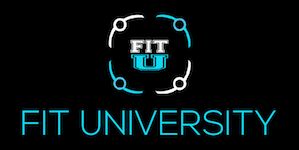 So you want to run 13.1 miles. Sounds daunting, right? But with some time and effort, it may not be as hard as it sounds. You don’t even need to be a runner; anyone can build their way up to a two-hour long run!
So you want to run 13.1 miles. Sounds daunting, right? But with some time and effort, it may not be as hard as it sounds. You don’t even need to be a runner; anyone can build their way up to a two-hour long run!
I started by doing half-hour runs– until they got easy. Then, I gradually built up to running for 45 minutes. Every time I got comfortable running for a certain length of time (usually after a few runs), I increased my time by fifteen minutes until I was comfortably running anywhere from 90 minutes to two hours. Depending on your fitness level, start at whatever level you’d like and use increments that are comfortable for you. Don’t feel discouraged if it takes you a little bit longer to increase your running length– everyone progresses at different rates!
In addition to running 3-4 times a week, there are other important aspects to training. Cross-training, or training using different types of exercise, is crucial for building full body strength to support your running and prevent injuries. Change it up, have fun, and improve your speed with hill and sprint workouts. I’ve found that it works best for me to alternate running and cross training workouts throughout the week and have one rest day before a longer weekend run. That way, I’m well rested for my long run, and can do a light, short recovery run the following day.
Two weeks out, many runners start a taper. Do your last long, hard run two weeks before the race, and do the next week like normal. If you’re less experienced, you can even decrease the intensity of your workouts two weeks away. Go for a 6-8 mile run one week before, and from there taper the intensity and duration of your workouts for the last week. Only go on one stretch-out run a few days before, and make sure to rest completely the day or two before the half. Stretch a lot, get plenty of sleep, drink tons of water, and eat a good amount of carbs (although there’s no need to crazy overload like you would for a marathon).
 Before you know it, it’s arrived: race day. Leave yourself enough time to be at the starting point at least an hour before the race. You’ll want something light and familiar to eat three hours before the race. It should consist of carbs and some protein— my go-to is a half glass of OJ and a quarter bagel with peanut butter. Drink water in the morning. Check the weather and make sure to wear plenty of layers to keep your muscles warm. Most races have a bag drop for stuff you don’t want to carry with you on the race. Once you get there, alternate between drinking water and peeing and have just a little bit of Gatorade. I often just stretch while standing in line for the porta-potties. Don’t forget to do an extensive warm up with dynamic stretching, light jogging, and general loosening up (do some jumping jacks, for example). Stay warm, even at the start!
Before you know it, it’s arrived: race day. Leave yourself enough time to be at the starting point at least an hour before the race. You’ll want something light and familiar to eat three hours before the race. It should consist of carbs and some protein— my go-to is a half glass of OJ and a quarter bagel with peanut butter. Drink water in the morning. Check the weather and make sure to wear plenty of layers to keep your muscles warm. Most races have a bag drop for stuff you don’t want to carry with you on the race. Once you get there, alternate between drinking water and peeing and have just a little bit of Gatorade. I often just stretch while standing in line for the porta-potties. Don’t forget to do an extensive warm up with dynamic stretching, light jogging, and general loosening up (do some jumping jacks, for example). Stay warm, even at the start!
Now to the race plan: the golden rule of racing is do not start out running too fast. Maintain a manageable pace for the first two miles as the crowd still fights to spread out. Once you finish that second mile, feel free to build up to your goal pace. My general rule for water is: wet your whistle at all the even miles. Then, depending on how you’re feeling, you can pick up the pace and/or get some Gatorade at mile seven. If you’re over halfway through and you’re feeling good, don’t be afraid to push it! Only drink some Gatorade if you feel it’s necessary. Then, the final push! At mile ten, drink some Gatorade (you’ll need it by then!), and pick up the intensity; only a 5k to go! You can do a 5k in your sleep. A sign of a great race is if your split drops in the last three miles.
A few more strategic tips: power up those hills! Hills are great place to put your training to good use and use them as power moves. When you come around corners, take the inside route. Shorten the amount you have to run by taking the hypotenuse. Encourage yourself as you pass people! Most importantly, take in energy from the crowd! They are there to support you, and believe it or not, will make you faster if you embrace their enthusiasm! Lastly, finish strong! The last two miles should be your fastest. And congratulations: you’ve just completed a half-marathon! Get your medal, rehydrate, eat, and get some electrolytes before you stretch and get warm!

[…] outside the gym. I decided to do something I’d never done before and signed up for my first 5k with a friend on Halloween. We’d barely trained, stuck together the entire race, and […]
[…] Conquering Your First Half-Marathon […]
[…] it be the Chicago Marathon or a local 5k, get those […]